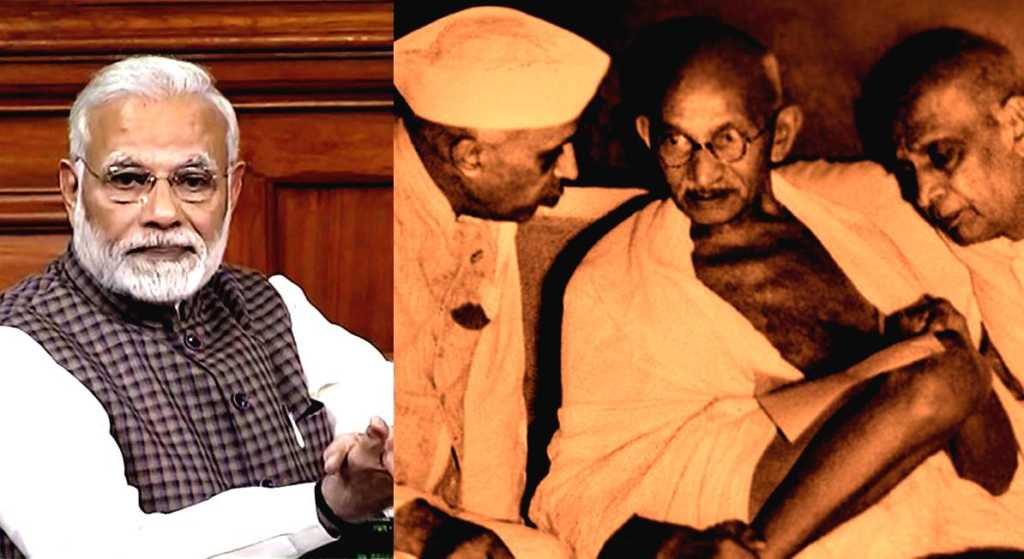After PM Modi’s brutal takedown on a largely rowdy opposition, I saw few Congress Social Media Warriors criticizing PM Modi for his speech in Lok Sabha. They were particularly critical about the part where PM Modi had talked about Congress’ backstabbing of Sardar Patel in order to promote Nehru. They wanted PM Modi to respect Sardar Patel’s “decision” of not accepting the post and stop questioning his wisdom. While giving a new spin to the Sardar Patel chapter, Social Media warriors of the Congress Party even quoted Sardar Patel’s age and health as one of the reason.
Congress is notorious for twisting history and facts, but we should not repeat the mistakes of our predecessors by not countering the misinformation in time.
A Brief History:
Last date of Nominations for the post of the President of Congress, and thereby the first Prime Minister of India, was set to April 29, 1946. By this time Gandhiji had already made his choice widely known. Still 12 out of 15 Pradesh Congress Committees, the only legal bodies who had the power to nominate and elect President of the Party, nominated Sardar Vallabhbhai Patel. No Pradesh Congress Committee proposed the name of Jawaharlal Nehru even on the last day of filing the nominations i.e. April 29, 1946.
Sardar Patel was widely considered “a great executive, organizer and leader, with his feet firmly the on the ground”. He had the firm backing of the majority of Congress leaders. However, It was J.B Kripalani who took the lead in lobbying for Nehru’s candidacy, in deference to Gandhi’s wishes. Kripalani succeeded in getting a few Working Committee members and local members of AICC to propose Nehru’s name for the post. Nehru’s nomination almost missed the April 29 deadline.
But soon after the elections, Nehru threatened of splitting the party and form the new opposition. But, for Patel post or position was immaterial, service to the motherland was supreme. Patel didn’t want an India divided based on political differences. Also, Gandhi was of the opinion that Patel was too aggressive and could even be harsh towards Muslims. Sardar’s inclinations towards towards Hinduism were well known. For secular Gandhi, Patel as the Prime Minister of India was not the kind of beginning that Secular India should have.
“One month after the election the Viceroy invited Nehru, as Congress President, to form an Interim Government. If Gandhi had not intervened, Patel would have been the first de facto Premier of India, in 1946-7”, said Prof. Michael Brecher of McGill University, a sympathetic biographer of Nehru.
Dr. Rajendra Prasad lamented that Gandhiji “had once again sacrificed his trusted lieutenant for the sake of the ‘glamorous Nehru’ and further feared that “Nehru would follow the British ways.” When Rajendra Prasad was using the phrase “once again” he indeed was referring to the denial of Presidentship of the Congress party to Patel in the years 1929, 1937 and 1946 in preference to Nehru.
I would advise the readers to further read about the congress presidential elections held at Tripuri Session of 1939, where Bose defeated Pattabhi Sitaramayya, but Gandhi threatened to leave Congress if Bose accepts the post.
The first election in the History of India was a rigged one. No amount of Justifications and reasonings can hide this fact. And while the liberal intelligentsia of this country hails Nehru as a towering statesman, a beacon of socialism, the founder of Non-Alignment revolution, a modern and forward-thinking man, the failures of Nehru as the prime minister of India are too many. The problem of Pakistan, Kashmir, China, Aksai Chin, Adoption of socialistic model, giving up of UNSC seat for China and myriad other failures are gifts of Nehru to India.
